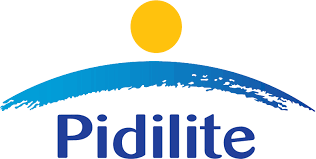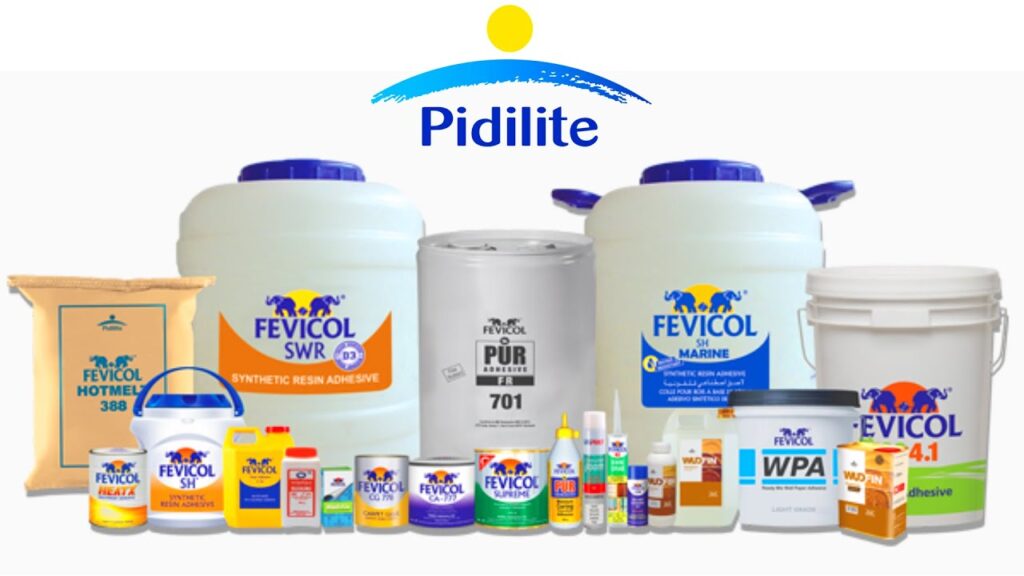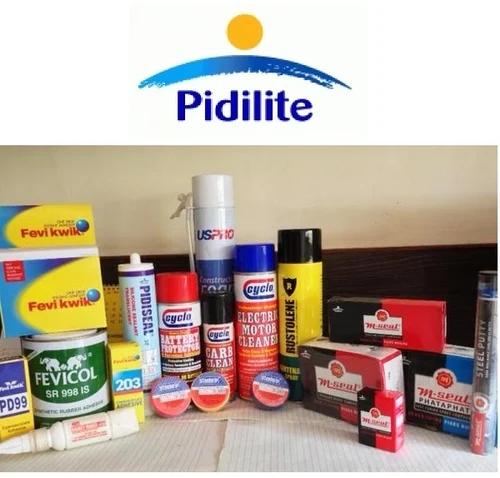In the world of adhesives and construction chemicals, Pidilite Industries has established itself as a market leader. At the heart of this remarkable success story is Balwant Rai Parekh, a visionary entrepreneur who transformed a simple glue business into a billion-dollar empire. Starting from humble beginnings as a peon in a warehouse, Parekh built Pidilite into a company that generates sales of ₹1 crore per hour, controlling over 70% of the Indian market with products like Fevicol. This case study will explore the business strategies, marketing innovations, and operational excellence that helped Pidilite achieve such unprecedented growth.

A Deep Dive Into Pidilite’s Success: Key Business Lessons
1. Product Innovation and Solving Real Problems
One of the key reasons behind Pidilite’s success was Balwant Rai Parekh’s ability to identify a problem in the market and solve it. In the mid-20th century, carpenters struggled with animal fat-based adhesives, which were not only inefficient but also smelled bad and were difficult to apply. Parekh’s research led to the development of Fevicol, a synthetic resin-based adhesive that was far more efficient, stronger, and easier to use than traditional glues. This innovation transformed the industry and became the foundation of Pidilite’s growth.
Lesson 1: Find a problem in the market and offer a superior product to solve it.
2. Understanding the Real Decision-Maker in the Buying Process
Instead of following the traditional route of distribution, where products would be sold through wholesalers and retailers, Pidilite adopted a direct-to-influencer strategy. Parekh recognized that carpenters—not end consumers—were the key decision-makers in choosing adhesives. By directly approaching carpenters and building relationships with them, Pidilite ensured that its product became their go-to choice.
This strategy mirrors what Astral Pipes did with plumbers and what Asian Paints did with painters, highlighting the importance of understanding who influences buying decisions.
Lesson 2: Understand the real decision-makers in your industry and build relationships with them.
3. Creating a Community: Fevicol Champions Club (FCC)
Pidilite didn’t stop at just selling products to carpenters; it went a step further by creating the Fevicol Champions Club (FCC). This initiative brought carpenters together for training, skill development, and community-building activities such as kite festivals and pilgrimages. This not only helped strengthen loyalty towards the Fevicol brand but also provided valuable insights into market needs.
Through FCC, Pidilite built a feedback loop where carpenters could share their challenges, allowing the company to develop new products like Fevicol Marine, Fevicol Heatx, and Fevicol Speedx in response to real market demands.
Lesson 3: Foster a community around your product to generate loyalty and gain valuable market insights.
4. Marketing Innovation: Relatable and Humorous Advertising
Pidilite’s advertising campaigns have become legendary in India. Rather than using celebrities, Pidilite focused on relatable characters and everyday situations, often featuring carpenters themselves. The company’s ads, like the iconic Fevicol elephant ads, combined humor with strong messaging, making them highly memorable. This approach helped Fevicol become a household name, much like how people ask for Colgate when they want toothpaste or Bisleri when they want bottled water.
Lesson 4: Use relatable advertising that connects with your target audience on an emotional level.

5. Product Expansion and Diversification
Initially, Pidilite was heavily dependent on Fevicol for its revenue. However, recognizing the risks of over-reliance on a single product, the company diversified its product portfolio through acquisitions. By purchasing established brands like M-Seal and Roff, Pidilite entered new markets while expanding its adhesive empire. This inorganic growth strategy allowed Pidilite to quickly scale without the lengthy process of developing new products from scratch.
Lesson 5: Expand through both organic and inorganic growth, strategically acquiring complementary brands to diversify your portfolio.
6. Innovative Packaging for a Diverse Audience
To further solidify its market presence, Pidilite employed packaging innovation. Fevicol was initially sold in large, industrial quantities for carpenters. However, recognizing the potential of the B2C market, Pidilite introduced smaller, affordable packaging like Fevi Kwik and Fevi Stik. This move allowed the company to reach a broader audience, including students and households.
Lesson 6: Adapt your packaging to suit different market segments and price points.
7. Strong Supply Chain Management and Backward Integration
As Pidilite’s business expanded, so did the complexity of its supply chain. To ensure consistent quality and reliability, the company pursued backward integration, acquiring suppliers to control the production of raw materials. This allowed Pidilite to maintain product quality while scaling its operations globally.
Lesson 7: Maintain a robust supply chain and consider backward integration to ensure quality and efficiency as you scale.

8. Global Expansion: Dominating the Indian Market and Beyond
Pidilite’s market dominance in India is unparalleled, with a 70% share in the adhesive market. However, the company didn’t stop there. With more than eight manufacturing plants and 30 subsidiaries globally, Pidilite now exports over 500 products to 70+ countries, including markets like the US and Singapore.
Lesson 8: Once you achieve market dominance, focus on global expansion to diversify revenue streams and reduce dependency on a single market.
9. Building Trust: Quality Over Price
Despite the competition, Pidilite maintains a premium pricing strategy. Competitors often offer adhesives at lower prices or on credit, but carpenters and contractors consistently choose Fevicol for its proven quality. The brand’s reputation for reliability means that customers are willing to pay more for a product they trust to protect their investments.
Lesson 9: Prioritize quality over price, especially when your product’s performance can significantly impact your customers’ business.
Conclusion: What Top B-Schools Can Learn From Pidilite
Pidilite’s journey from a small adhesive business to a market leader with global reach offers invaluable lessons in entrepreneurship, marketing, operations, and strategic management. From identifying a niche market problem to building a community of loyal customers, Pidilite’s growth is a masterclass in how to scale a business while maintaining quality, brand loyalty, and innovation. Business students and professionals can take away several critical lessons:
- Entrepreneurship: Find a real problem and solve it with innovation.
- Marketing: Build emotional connections through relatable advertising.
- Operations: Control the supply chain to ensure quality and efficiency.
- Strategic Growth: Expand wisely through organic growth and acquisitions.
By following these strategies, Pidilite has not only dominated the Indian market but also expanded globally, becoming a trusted brand across multiple industries.
References:
- Market Reports on Global Adhesive Industry.
- Research Articles on Pidilite’s Marketing and Business Strategies.
Leave a Reply